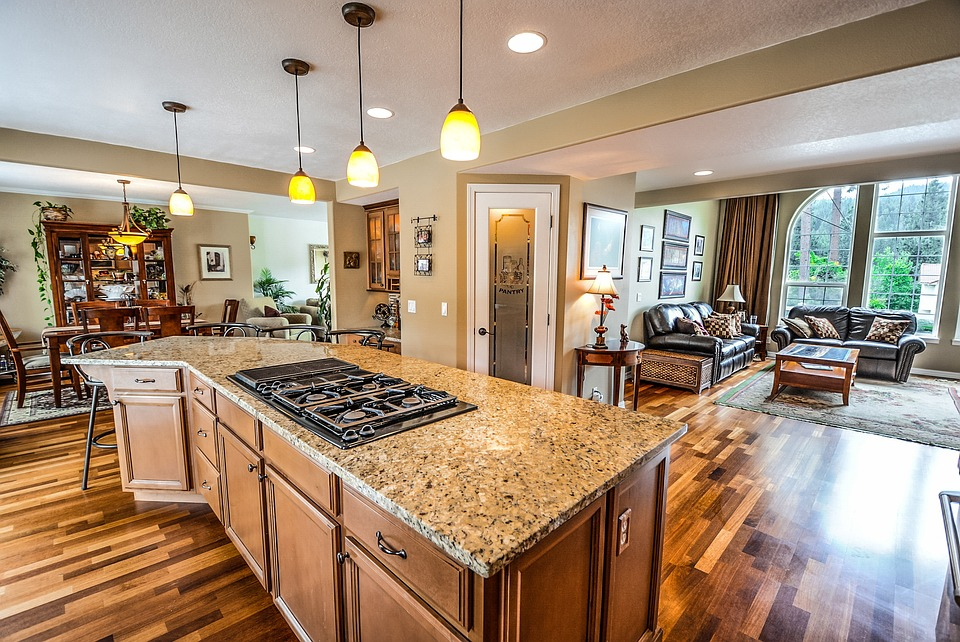How Preventive Home Maintenance Saves You Money
- Vanshika Thareja

- Jul 28
- 4 min read
Have you ever faced an unexpected home repair that left your wallet empty? Emergencies like broken water heaters or leaking roofs often come at the worst times and can cost more than you expect. Preventive home maintenance helps you avoid these sudden expenses. By taking small steps to care for your home now, you save money and reduce stress later.
In this blog, we will share how preventive home maintenance can make a big difference to your budget and your home's long-term health.
Regular Inspections Identify Small Problems Early
Checking your home regularly allows you to catch issues before they become expensive repairs. Inspect your roof, gutters, plumbing, and foundation at least twice a year. Small cracks, leaks, or clogged systems can lead to bigger structural issues if ignored. Addressing these problems early often costs far less than waiting until major repairs are necessary.
You can create a simple checklist for each season to keep track of these inspections. Many homeowners choose to hire professionals for detailed checks once a year. This small investment helps you protect your home from hidden damage and gives you peace of mind knowing everything is in working order.
Pest Prevention Saves Structural Costs
Pests can silently damage your home’s foundation and wooden structures. Termites, ants, and rodents are among the most destructive. Treating a pest infestation can be expensive, but repairing the damage they cause often costs much more. Preventive pest control services and inspections help you avoid these unexpected bills.
Forest Pest Control offers reliable termite control services that protect your property from long-term harm. Their team can inspect your home for signs of pests and take proactive steps to eliminate them before they spread. Termite damage can ruin floors, walls, and support beams, which makes prevention essential. Working with experts ensures your home remains strong and safe for years.
Maintaining Heating and Cooling Systems Cuts Energy Bills
Your heating and cooling systems work hard all year, and neglecting them can cause breakdowns and higher energy bills. Simple actions like changing air filters every few months and scheduling annual tune-ups help your HVAC system run efficiently. A well-maintained system uses less energy, which lowers your monthly utility costs.
When systems run smoothly, they last longer. Replacing a broken air conditioner or furnace can cost thousands of dollars. Preventive maintenance allows you to avoid those large expenses. Professionals can spot worn-out parts and make small repairs before they lead to full system failures.
Plumbing Care Prevents Water Damage
Water damage is one of the most expensive problems a homeowner can face. A leaking pipe, clogged drain, or broken water heater can cause flooding that damages floors, walls, and personal belongings. Routine plumbing maintenance helps you avoid these situations.
Check under sinks and around appliances for leaks regularly. Flush your water heater once a year to remove sediment buildup and extend its life. Hiring a plumber for periodic inspections can also catch potential issues, such as corroded pipes, before the
ey fail. This care reduces the risk of water damage and lowers your overall repair costs.
Roof and Gutter Maintenance Avoids Costly Replacements
Your roof and gutters protect your entire home from rain and debris. If you do not maintain them, water can seep into the walls and foundation, leading to expensive repairs. Cleaning gutters every season prevents blockages that cause water overflow.
Inspect your roof at least once a year, especially after severe weather. Replace missing shingles and seal small cracks to prevent leaks. Professional roof inspections cost much less than replacing a damaged roof. Keeping your roof in good condition can add years to its lifespan, saving you thousands in replacement costs.
Appliance Upkeep Reduces Replacement Expenses
Household appliances like refrigerators, dishwashers, and washing machines are expensive to replace. Regular maintenance can add years to their lifespan. Cleaning filters, removing buildup, and following manufacturer guidelines help your appliances perform better and last longer.
Neglecting maintenance often leads to breakdowns that are costly to repair. For example, a clogged dryer vent can cause your dryer to overheat and fail. Spending a little time on upkeep prevents these failures and protects your budget from sudden large expenses.
Landscaping Helps Protect Your Home’s Structure
A well-maintained yard does more than improve your home’s appearance. Overgrown trees and bushes can damage siding, roofs, and foundations. Roots from large trees can break underground pipes or shift your home’s foundation, leading to significant repair costs.
Trimming branches and managing plant growth helps you avoid these issues. Regularly clearing leaves and debris keeps pests and moisture away from your home’s exterior. Landscaping maintenance also prevents drainage problems that can lead to flooding around your foundation. This small effort can save you a great deal in long-term structural repairs.
Seasonal Preparation Avoids Emergency Costs
Preparing your home for each season reduces the chance of sudden breakdowns. In the winter, check your heating system, insulate pipes, and seal gaps to prevent cold air leaks. In the summer, inspect your cooling system and prepare for storms by securing outdoor furniture and trimming trees.
These preparations may seem minor, but they prevent emergencies that can cost thousands. A burst pipe in freezing weather can destroy flooring and furniture. A strong windstorm can damage your roof or siding. By taking seasonal precautions, you avoid these sudden expenses and protect your home year-round.
In conclusion, preventive home maintenance is about more than saving money. It helps you protect your home, avoid stressful emergencies, and enjoy a safer living environment. Small tasks, like regular inspections and appliance care, make a big difference over time. These habits allow you to manage your home’s condition on your own terms instead of reacting to expensive problems. Start with one area at a time and build a maintenance routine that works for you. The money you save can be used for upgrades, vacations, or other goals. Think of preventive care as an investment in your home’s value and your future.




Comments